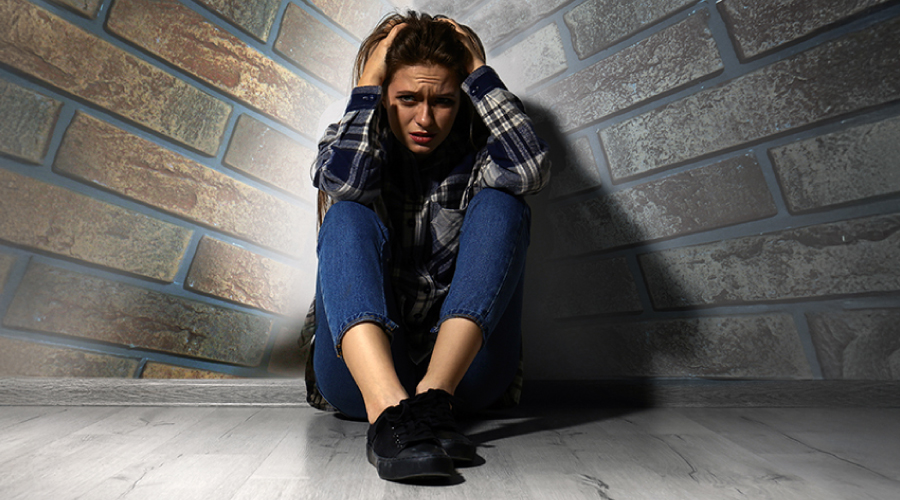

Claustrophobia is an intense and irrational fear of being stuck in confined places. It can evoke feelings of anxiety, fear, and suffocation when trapped in a crowd, elevator, or when seated in an airplane.
In this blog, we will take a closer look at what is claustrophobia, why it happens, its symptoms, and ways to cope when you have been in enclosed spaces. Keep scrolling!
What is Claustrophobia?
Claustrophobia is a type of anxiety disorder that can trigger some people when they’re in close spaces like cellars, small rooms, tunnels, MRI machines, etc. This phobia can make you avoid such places, affecting your life.
Statistics from NCBI show that 7.5% of people have a lifetime claustrophobia and women are more prone to it than men. On an average 2.3% people report a feeling of anxiety and shortness of breath when going in MRI machines and require mild sedatives.
Now that you have understood what is claustrophobia, check the next section to explore its symptoms.
Claustrophobia Symptoms
There are physical and emotional symptoms of claustrophobia that can manifest when one feels confined in congested spaces. Claustrophobia can make people restricted as if they have little or no control in that situation or environment. This can eventually lead to the following claustrophobia symptoms:
- Sweating/chills
- Palpitations
- Increased blood pressure
- Dizziness, lightheadedness
- Hyperventilation
- Numbness
- Choking sensation
- Urge to urinate
- Tightness in chest
- Confusion
To know what is claustrophobia treatment, scroll to the next section.
Claustrophobia Treatment
Claustrophobia treatment involves the person undergoing any of the two therapies, as follows:
1. Cognitive Behavioural Therapy (CBT)
This therapy helps change your negative thinking pattern to alter how you would normally react to claustrophobic situations. With CBT for claustrophobia, you’ll be able to do the following:
- Be able to describe your thought process in confined places to the expert.
- Gain a deeper understanding of your response in that situation.
- Identify your triggers and help you rethink your response, bringing a change into your thinking.
- Use problem-solving skills to cope with anxiety.
- Face the fear instead of avoiding it.
- Stay calm and composed when they start to feel claustrophobic.
2. Exposure Therapy
Exposure therapy helps desensitize you to being in enclosed spaces so much that each time your anxiety reduces. You are deliberately exposed to confined but safe places that you normally fear. The benefits of this therapy are:
- You face your fear in real time.
- You can recall your exact experience and share it with the expert to get help.
- Over time, you’ll be able to control your response and fight the panic attacks.
Along with these therapies, medication may also be prescribed to manage anxiety caused by claustrophobia. Some commonly recommended meds are clonazepam (Klonopin®), diazepam (Valium®), and alprazolam (Xanax®). Other than the medications you can also opt for natural remedies as discussed in the next section.
Read More: EFT Tapping: A New Approach to Anxiety Relief
How to Manage Claustrophobia Anxiety?
The management of claustrophobia works by reducing anxiety attacks in closed-up spaces and helping you cope. Here are some natural remedies for claustrophobia that have been found effective:
- Take natural herbs like passionflower and kava that help reduce panic attacks and anxiety before they take a hold over you mentally. Use these herbs to make tea or consume their capsules and tablets.
- Listen to soothing music to distract yourself when using lifts, tunnels, or underground subway stations.
- Take slow and deep breaths to improve oxygen flow to your body, keep yourself calm, and avoid anxiety.
- Observe your surroundings and other people when you feel scared in confined places. Seeing others calm will help you stay in control of your emotions.
To Sum Up
Claustrophobia is an irrational fear that triggers when you’re in confined spaces like a small room, a congested chair, elevators, etc. This phobia can cause high blood pressure, pulse rate, sweating, numbness, tightness in chest, and more. If this fear has been a big deal in your life, you can consider consulting an expert for therapies like CBT and exposure therapy.
Alternatively, you can manage your anxiety by staying tuned with your surroundings, listening to calming music to stay calm can help you cope with the anxiety.




